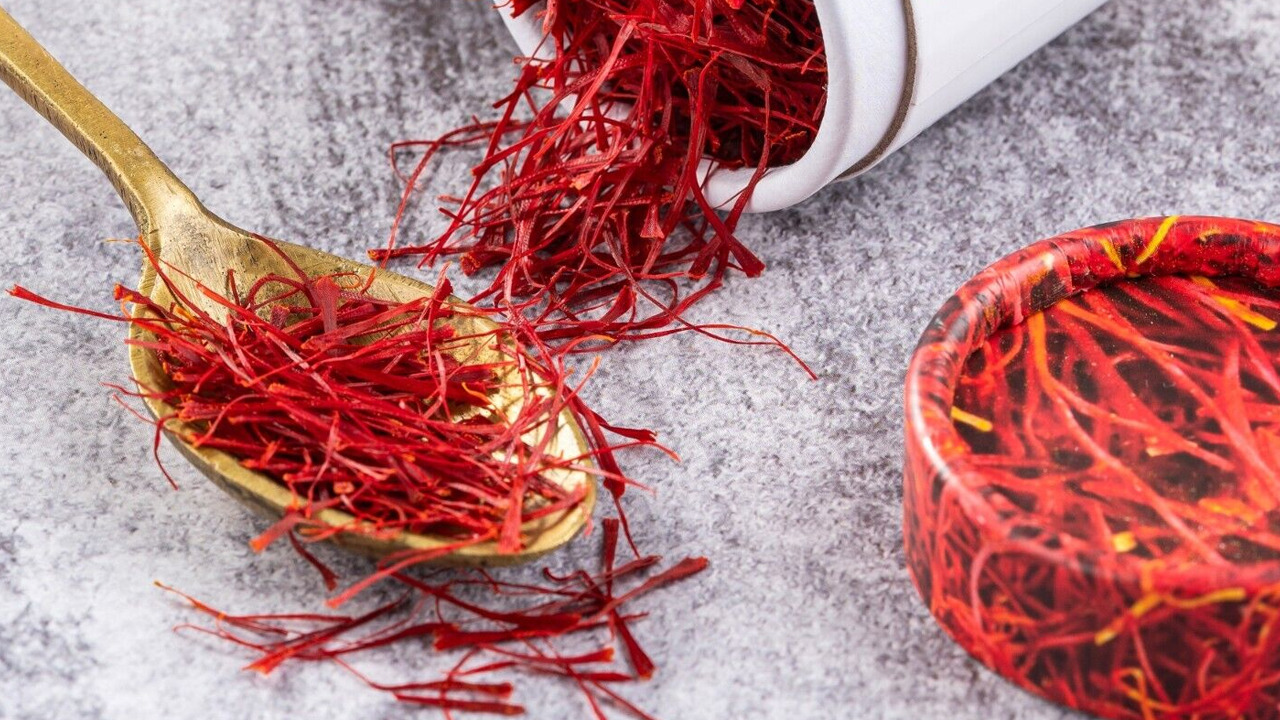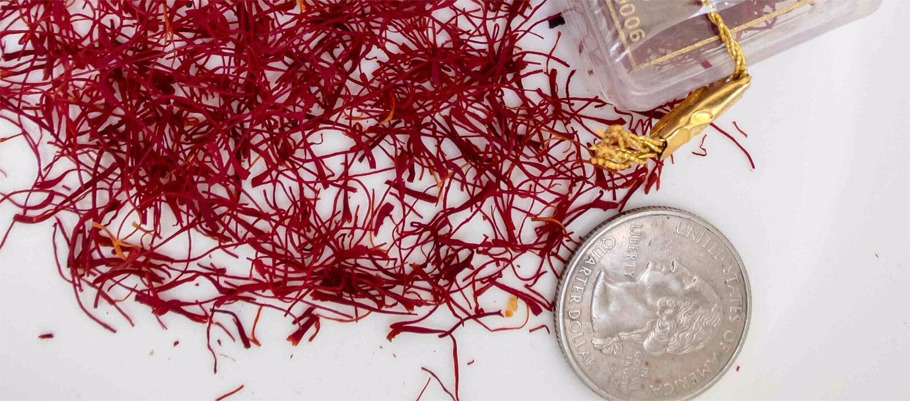Uses and Benefits of Saffron Spice

Saffron, the golden treasure derived from the Crocus sativus flower, has enchanted civilizations for centuries with its vibrant color, distinct aroma, and versatile culinary applications. Saffron possesses a delicate floral aroma and imparts a subtly sweet, earthy taste with hints of honey and hay. In this article, we will unravel the myriad uses and health benefits that make saffron a prized spice in kitchens around the world.
1. Culinary Uses
- Flavorful Elevation: Saffron is renowned for imparting a unique and intense flavor profile to dishes. From savory rice-based dishes like paella to sweet treats like saffron-infused desserts, its distinctive taste adds an unparalleled depth that elevates culinary creations.
- Aromatic Infusion: Beyond its taste, saffron contributes a captivating aroma to dishes. Whether used in soups, stews, or infused in teas, the fragrance of saffron is an essential element in creating a sensory culinary experience.
- Luxurious Coloring Agent: Saffron is celebrated for its ability to impart a rich golden hue to foods. Chefs often use saffron to add a touch of luxury to dishes, creating visually stunning and appetizing meals.
- Versatility in Beverages: Saffron isn't limited to solid foods; its unique properties make it an excellent addition to beverages. Saffron-infused teas, lattes, and cocktails showcase its adaptability and enhance the overall drinking experience.
2. Health Benefits
- Antioxidant Powerhouse: Saffron is packed with antioxidants, such as crocin and safranal, which help combat oxidative stress in the body. These compounds may contribute to overall well-being and may have potential anti-inflammatory effects.
- Mood Enhancement: Some studies suggest that saffron may have mood-boosting properties. It is believed to influence serotonin levels in the brain, potentially aiding in the management of mild depressive symptoms.
- Digestive Aid: Traditionally, saffron has been used to promote digestion. Its anti-inflammatory properties may help soothe the digestive tract, making it a valuable addition to meals, particularly in regions where it has been used in traditional medicine.
- Potential Cardiovascular Benefits: Research indicates that saffron may have cardiovascular benefits, including the potential to lower blood pressure and improve cholesterol levels. These properties contribute to heart health and overall cardiovascular well-being.
3. Cultural and Medicinal Significance
- Culinary Heritage: Saffron holds cultural significance in many cuisines, such as Persian, Indian, and Spanish. Its presence in traditional dishes not only adds flavor but also connects generations through shared culinary practices.
- Traditional Medicine: Saffron has been used in traditional medicine for various purposes, including treating respiratory issues, and menstrual discomfort, and promoting overall vitality. While its medicinal use should be approached with caution, these historical practices highlight its esteemed status in traditional healing.

Conclusion
Saffron, with its dazzling color and complex flavor profile, is more than just a spice; it is a symbol of culinary excellence and cultural heritage. As we continue to explore its diverse applications in the kitchen and recognize its potential health benefits, saffron remains a timeless and valuable ingredient, inviting us to savor the richness it brings to our tables and well-being.